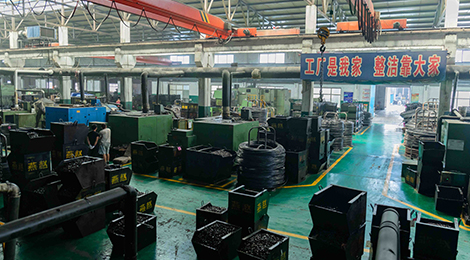Purchase Stud Bolts and Nuts for Your Next Project
Oct . 19, 2024 06:30 Back to list
Purchase Stud Bolts and Nuts for Your Next Project
Buying Stud Bolts with Nuts A Comprehensive Guide
When it comes to structural integrity and safety in construction and manufacturing, fasteners play a critical role. Among the various types of fasteners, stud bolts paired with nuts are widely used due to their strength, versatility, and reliability. If you are considering purchasing stud bolts with nuts, understanding their characteristics, applications, and the factors to consider during the buying process is essential. This article aims to provide a comprehensive overview of buying stud bolts with nuts, ensuring you make informed decisions.
What Are Stud Bolts?
Stud bolts are long, threaded rods that do not have a head on one or both ends. They are typically used in conjunction with nuts to securely fasten two or more components together. Stud bolts can be manufactured from various materials, including carbon steel, stainless steel, and alloy steel, offering different levels of corrosion resistance and strength. Their length and diameter can vary, allowing for flexibility in a wide range of applications.
Applications of Stud Bolts
Stud bolts are commonly used in numerous industries, including
1. Construction In building structures, they are used to connect beams, columns, and other load-bearing components. 2. Oil and Gas Stud bolts are essential in pipeline construction and maintenance, where they hold flanges and other attachments securely in place. 3. Automotive They are used in engines and chassis, providing robust connections that withstand vibration and other stresses. 4. Manufacturing Stud bolts can be found in machinery, where they are crucial for assembling and maintaining equipment.
Choosing the Right Stud Bolts and Nuts
When buying stud bolts with nuts, several factors should be considered to ensure that you select the right products for your specific application
.1. Material The choice of material will depend on the environment and the mechanical stresses the fasteners will encounter. For example, stainless steel is ideal for corrosive environments, while carbon steel is suitable for general purposes.
2. Size The diameter, length, and thread pitch of the stud bolts are crucial. It is essential to measure the components you intend to fasten to choose the right dimensions.
buy stud bolt with nut

3. Strength and Grade Fasteners are manufactured according to various standards, which determine their strength. It’s important to select a grade that meets or exceeds the load requirements for your application.
4. Coatings Some stud bolts come with protective coatings (like zinc plating) to improve their corrosion resistance. Depending on your environment, you might opt for coated or uncoated options.
5. Nut Compatibility Make sure the nuts you purchase match the thread size and pitch of the stud bolts. This is essential for ensuring a secure fit and optimal load distribution.
Where to Buy Stud Bolts with Nuts
There are several avenues to consider when purchasing stud bolts and nuts
- Local Hardware Stores For smaller quantities and immediate needs, local suppliers can be convenient. - Specialized Fastener Suppliers These providers often offer a broader selection of materials and sizes, catering to specific industrial requirements.
- Online Retailers E-commerce platforms allow you to compare prices, read reviews, and find exactly what you need, often at competitive rates.
- Bulk Suppliers If you require large quantities, purchasing directly from manufacturers or bulk suppliers can be cost-effective.
Conclusion
Investing in quality stud bolts with nuts is vital for ensuring the safety and durability of your projects. By considering material, size, strength, and compatibility, you can make informed decisions that enhance the performance of your assemblies. Whether you’re involved in construction, oil and gas, automotive, or manufacturing, taking the time to understand your needs will lead to successful outcomes. So, when you're ready to buy, make sure to do your research and select the best options for your specific application.
Latest news
-
High-Quality Panel Stud Bolt Reliable Panel Stud Bolt Factory & Suppliers
NewsJul.08,2025
-
High-Precision Fine Thread Locknuts Manufacturer & Supplier Custom Solutions
NewsJul.08,2025
-
PH Imperial Stud Bolt – High Strength Fasteners from Leading Supplier & Factory
NewsJul.07,2025
-
High-Quality Allen Wrench Bolts Leading Factory, Company & Suppliers
NewsJul.07,2025
-
Wholesale Ball Stud Bolt - High Quality Supplier & Factory Price Reliable Wholesale Ball Stud Bolt Company
NewsJul.06,2025
-
High-Strength Alloy Bolts Manufacturer & Supplier Quality Alloy Fasteners Factory
NewsJul.06,2025
